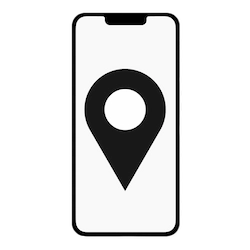What Happens If You Crash an Enterprise Rental Car?
Renting a car is common in the USA, whether for travel, business, or while your vehicle is in the shop. Accidents are inevitable, with thousands of Enterprise rental cars on the roads daily. So, what happens if you find yourself in a crash involving an Enterprise rental vehicle? Let’s explore the process, responsibilities, and potential consequences.
Immediate Post-Accident Steps
Just as in any accident, there are immediate actions you should take:

- Check for Injuries: Ensure everyone involved is okay. Call 911 if there are any injuries.
- Move to Safety: If possible, move the vehicle from traffic to a safe location.
- Contact the Police: File a police report, which can be crucial for insurance claims and potential legal matters.
- Document the Scene: Take photos of the damages, the scene, and any contributing factors like malfunctioning traffic lights or obstacles.
Inform Enterprise
It’s crucial to contact Enterprise as soon as possible. They will guide you through their specific procedures, which typically include:
- Filling Out an Incident Report: Enterprise will require details of the accident. This will include the time, place, and circumstances of the incident.
- Returning the Vehicle: Depending on the damage, Enterprise might require the vehicle to be returned to them for assessment.
Insurance Implications
You’ll be presented with various insurance and damage waiver options when renting from Enterprise. If you decline their insurance, how the damages are covered depends on your auto insurance and the credit card used for the rental.
- Damage Waiver (DW): Opting for Enterprise’s Damage Waiver can relieve you of financial responsibility if the rental car is damaged or stolen. However, DW might become void if the damage occurred due to reckless driving or driving under the influence.
- Personal Auto Insurance: If you declined the DW, your auto insurance would typically be the primary coverage for the rental car. Check your policy’s specifics; not all auto insurance policies automatically cover rental vehicles.
- Credit Card Insurance: Many credit cards offer rental car insurance as a perk, acting as secondary coverage after your auto insurance. Review your card’s benefits and limitations.
Potential Charges
If you declined all of Enterprise’s insurance and damage waiver options, you might be responsible for the following:
- Damage Repair: The cost to repair any damages to the vehicle.
- Loss of Use: Charges for the potential revenue Enterprise loses while the car is being repaired.
- Administrative Fees: Fees covering the administrative tasks associated with processing the claim.
- Towing and Impound Fees: You might be billed for these if applicable.
- Diminution in Value: If the car’s market value has decreased after the accident, you might be charged for that decrease.
Handling Third-Party Claims
If you were at fault and there were damages to another vehicle or injuries to others, claims might be raised against you. Your auto insurance liability coverage generally addresses these, but knowing your policy limits is essential.
Lessons on Coverage
While it might seem like an unnecessary expense at the rental counter, the aftermath of an accident showcases the potential value of opting for rental insurance. It can:
- Minimize Out-of-Pocket Costs: With the right coverage, you might not have to pay anything beyond a small deductible.
- Reduce Administrative Hassles: Enterprise would deal directly with their insurer rather than you handling claims with your insurance.
- Protect Against Premium Hikes: Using rental car insurance might protect your auto insurance rates from increasing due to a claim.
Legal Implications
You could face legal repercussions if you were driving under the influence, engaging in illegal activities, or allowing an unauthorized driver to operate the rental car. Additionally, the DW and any insurance purchased through Enterprise may become null, making you responsible for all costs.
Conclusion
Accidents, while unfortunate, are a reality of driving. The situation can feel more daunting when they involve a rental vehicle due to unfamiliar processes and potential financial implications. Being well-informed about your rights, responsibilities, and coverage options is essential. Review your insurance policies and credit card benefits before declining rental car insurance. While it might represent an added cost at the outset, the peace of mind and potential financial savings can prove invaluable should an accident occur.
